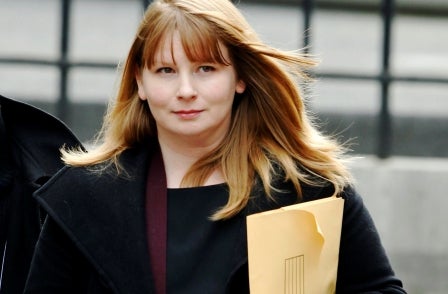
The NUJ has said the core issue at the heart of the BBC’s current crisis is the number of editorial jobs being cut.
NUJ general secretary Michelle Stanistreet is calling for a “moratorium” on the cuts, which she says are threatening the quality of journalism at the BBC.
The NUJ is currently campaigning to find an alternative to the BBC Delivering Quality First (DQF) programme, which aims to cut the overall budget by 20 per cent and would see the loss of 2,000 jobs.
She said: “There must be a moratorium on these cuts. This should be a wake-up call to the BBC – they need to take the opportunity to halt the assault on frontline journalism and put in place measures to shore up news and current affairs before it is too late.”
In a statement, Stanistreet claimed morale at the BBC already is at an “all-time low”, saying that 7,000 jobs have been lost since 2004.
“Journalists are losing their jobs because the BBC says it does not have the money – but it seems the BBC Trust is able to find £450,000 as pay-off for the 54 days of George Entwistle’s term as director general – double his contractual rights. It beggars belief,” she said.
Stanistreet cited job losses at the BBC’s Asian Network, BBC Scotland and local radio and TV stations as areas the BBC should not be cutting.
“Even flagship programmes have not been ringfenced – at Newsnight, for example, the budget in real terms has halved over the past five years and the number of reporters and senior journalists has been cut relentlessly. These are simple facts,” she said.
“With fewer journalists, many employed on a casual basis, it means there is no time for that extra telephone call, no time to double-check the facts, no time to reflect properly before a programme goes out.
"The current re-grading proposals could see a situation where someone can be paid the minimum of £15,000 and end up in charge of a sensitive political report or even the output of a whole programme and then get blamed when it goes wrong.”
“It’s testament to the great journalists working at the BBC that they manage, often through sheer goodwill and professional commitment, to get the job done despite staff shortages and dwindling resources.
"But the pressure this puts on journalists and journalism is undeniable.”
She added: “Individual journalists must not be scapegoated for what is a failure of management.
"Lord Patten must take a long hard look at what has happened and why.
"And he must ultimately take on a director general who will fight for quality journalism, rip up DQF and take a strategic view to ensure that this great institution has the future it deserves.”
Separately, the NUJ issued a statement on behalf of Newsnight journalists, who said they are "appalled" by what has happened. The NUJ said: "The overwhelming majority of those who work there had no involvement with the story, and were not consulted about it before broadcast."
Email pged@pressgazette.co.uk to point out mistakes, provide story tips or send in a letter for publication on our "Letters Page" blog
